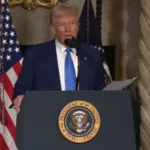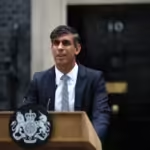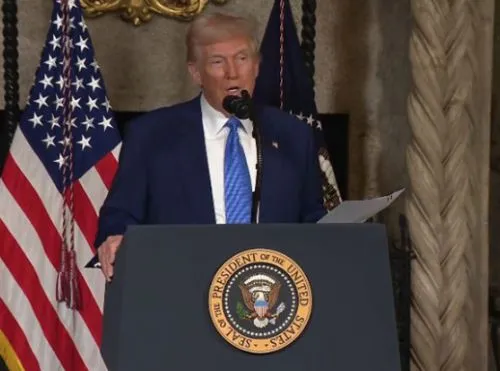In a recent address from his Mar-a-Lago residence, President Donald Trump scrutinized a $21 million allocation by the United States Agency for International Development (USAID) aimed at enhancing voter turnout in India. This revelation follows an audit by the Elon Musk-led Department of Government Efficiency (DOGE), which has been actively reviewing federal expenditures.
“Why are we giving $21 million to India?” President Trump questioned. “They have a lot of money. They’re one of the highest taxing countries in the world.”
The President’s remarks come on the heels of a bilateral meeting with Indian Prime Minister Narendra Modi, where discussions encompassed trade imbalances and defense collaborations. Despite expressing respect for Prime Minister Modi, President Trump highlighted the challenges American businesses face due to India’s high tariffs, which he described as “unacceptable.”
The $21 million aid, intended to support India’s Election Commission in boosting voter participation, was part of a broader USAID initiative. However, under the directive of DOGE, this funding, along with several other international aid programs, has been rescinded. Elon Musk, appointed to lead DOGE, has been instrumental in identifying and eliminating what the administration deems unnecessary expenditures.
This development has ignited a political debate within India. The ruling Bharatiya Janata Party (BJP) has called for an investigation into potential external influences on the nation’s electoral process. Conversely, former Chief Election Commissioner S.Y. Quraishi refuted claims of financial assistance from USAID during his tenure, labeling such allegations as “false and malicious.”
The decision to retract this aid underscores the Trump administration’s broader strategy to reassess foreign assistance, especially to nations with substantial economic resources. As President Trump emphasized, the U.S. aims to prioritize domestic needs and ensure that international aid aligns with national interests.
This move is anticipated to further strain U.S.-India relations, particularly in the context of ongoing trade negotiations and defense partnerships. As both nations navigate these complexities, the recalibration of aid and trade policies will be pivotal in shaping the future trajectory of their bilateral ties.




























Add Comment